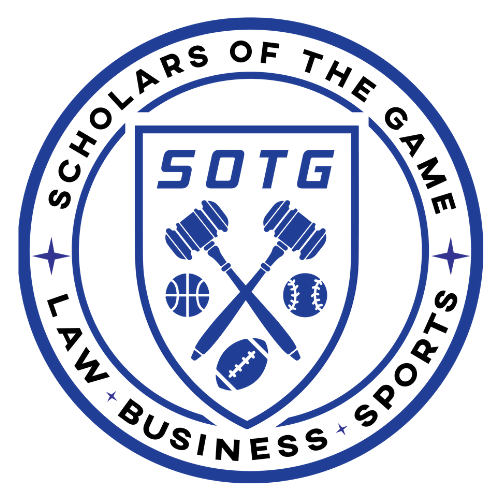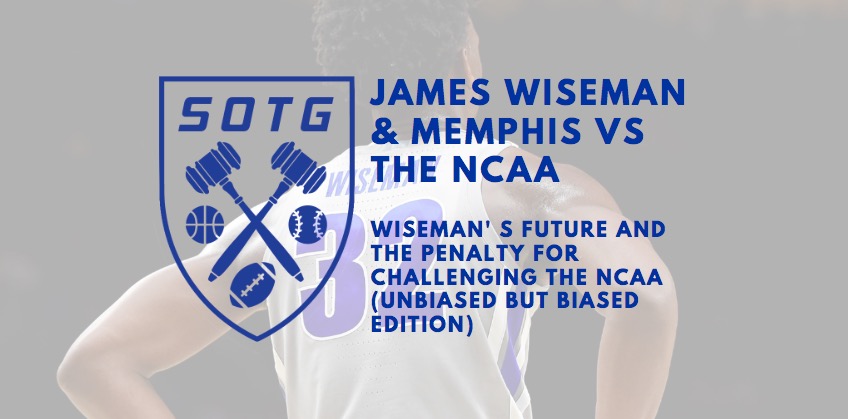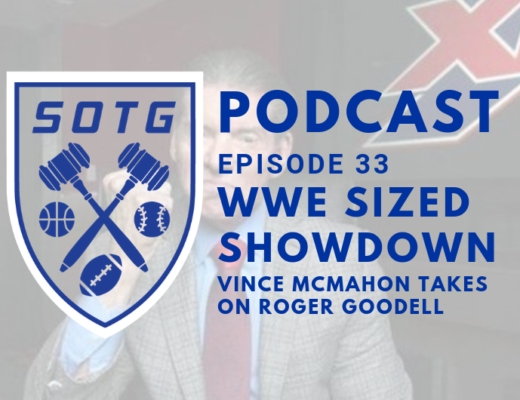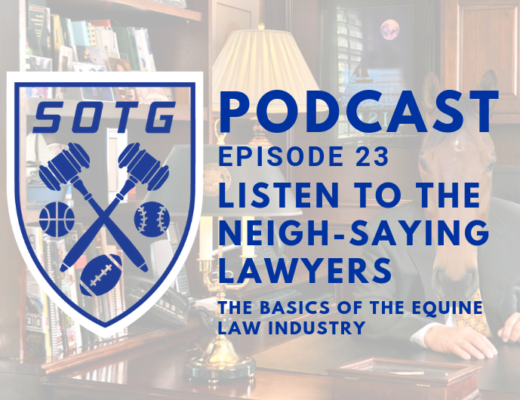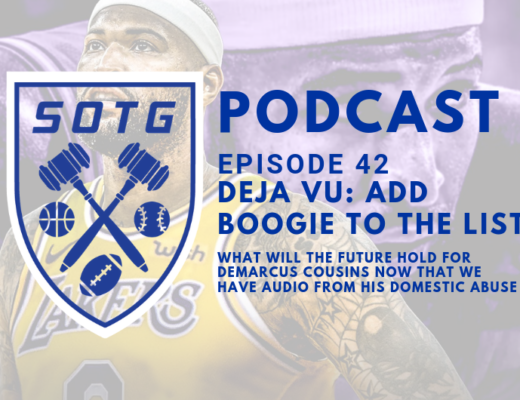By: Colton L. Adams
On Episode 48, “Memphis Style Drama,” I joined Brian and Taylor to discuss the recent battle between the University of Memphis, Coach Penny Hardaway, possible Future-No. 1 NBA Draft pick James Wiseman and the NCAA. As I mentioned on that episode, I am originally from Memphis, a city that lives and breathes basketball. Being a Memphis native (or colloquially, a “Memphian”) means growing up a huge fan of the Memphis Tigers and Grizzlies. That said, I’ve been trying my best to view this through an unbiased lens—and it’s still pretty insane.
Against what some sports commentators and others on social media might say, the James Wiseman situation is anything but a straight-forward, run-of-the-mill NCAA violation. In fact, it’s the complexity of this situation that makes it such a big deal in the eyes of many college basketball fans. So let’s start off with a timeline…
Timeline of Events
While I’ve included a lot of background information in order to convey a better understanding of the situation, the starred (**) events are the most vital with regard to the actual violation.
- 1991-1993: Penny Hardaway, a Memphis native, plays basketball at Memphis State (now known as the University of Memphis), averaging 20 points, 5.9 assists, and 7.7 rebounds per game in his two seasons.
- 1993: Penny Hardaway forgoes his senior year and is selected #3 overall in the 1993 NBA Draft. Despite this, Hardaway returns to graduate from the University of Memphis in 2003.
- **2008: Shortly after ending his NBA career, Penny Hardaway donates $1 million to his alma mater, the University of Memphis. In addition to this donation, Penny becomes known as local community philanthropist in Memphis, and returns to help coach local high school basketball.
- 2012: Penny Hardaway begins coaching AAU team, Team Penny, which competes on the Nike EYBL circuit.
- 2015: Penny Hardaway becomes the head coach of Memphis East High School after Coach Desmond Merriweather died from his long battle with colon cancer.
- Spring 2017: James Wiseman joins Team Penny to play AAU basketball on the Nike EYBL circuit.
- **August 2017: James Wiseman’s family moves from Nashville to Memphis to be closer to James’ sister, allow Wiseman to transfer to East High School. To assist the family, Penny Hardaway paid approximately $11,500 of the Wiseman family’s moving expenses.
- November 2017: Wiseman is ruled ineligible by the Tennessee Secondary School Athletic Association due to an “athletic coaching link” with Hardaway, having played for Team Penny.
- December 2017: After a lawsuit is filed by the Shelby County Board of Education, Wiseman is allowed to play.
- March 14, 2018: The University of Memphis fires Tubby Smith after two seasons and a combined 40-26 record, missing the NCAA Tournament in both of those years.
- March 17, 2018: Penny Hardaway, James Wiseman lead East High to the school’s third straight state championship.
- March 20, 2018: After weeks of speculation, Hardaway is introduced as Memphis’ new head coach.
- April 7, 2018: Penny Hardaway offers James Wiseman a scholarship to play at Memphis. Prior to Hardaway becoming the new head coach, Kentucky was the heavy favorite to sign Wiseman.
- **November 2018: After making visits to multiple schools, including Kentucky, Wiseman signed his commitment to the University of Memphis.
- **May 2019: Wiseman is declared eligible by the NCAA following a joint standard eligibility review by Memphis and the NCAA. Importantly, all information regarding Hardaway’s financial assistance to Wiseman’s mother was shared with the NCAA prior to its certification of Wiseman’s eligibility.
- **Oct. 31-November 5, 2019: Wiseman makes his debut for Memphis against South Carolina State, finishing with 28 points, 11 rebounds, and 3 blocks.
- Around the same time, Memphis receives a letter from the NCAA stating that Wiseman is deemed “likely ineligible” due to their new interpretation of the bylaws on recruiting violations.
- According to the decision, Hardaway was deemed a booster by the NCAA because of his $1 million donation. As such, providing $11,500 to Wiseman’s family was a violation of NCAA recruiting bylaws that prevents boosters from paying student-athletes.
- November 8, 2019: The NCAA’s eligibility decision is officially announced, along with their decision on Ohio State’s star defensive end Chase Young, who was suspended for accepting a loan from a family friend.
- Wiseman then filed an injunction with a local court, approximately an hour before Memphis was set to play the University of Illinois-Chicago. The injunction was granted, allowing Wiseman to play.
- November 14, 2019: Wiseman voluntarily withdraws his suit against the NCAA in a show of good faith to begin the reinstatement process.
- **November 20, 2019: Wiseman is suspended a total 12 games by the NCAA (9 games for the initial violation + 3 additional games for the games that Wiseman played while ineligible), allowing him to return on January 12. In addition to the suspension, Wiseman is required to donate $11,500 to a charity of his choosing.
If that timeline was too much to follow, here’s my short unbiased (but biased) version —> Likely unknown to him at the time, a high school sophomore’s family moves to Memphis with the help of a local community philanthropist; two years later, the NCAA finds out about the money and says he’s still allowed to play at the local college; six months after that, the power-hungry NCAA suspends him anyways; then decides a college freshman that couldn’t afford to move, now must pay $11,500 in order to be allowed to play basketball for free.
James Wiseman’s Punishment
Twelve games, $11,500—that is the cost of challenging the NCAA. When the final NCAA ruling came out, I was dumbfounded. Here is a poor college kid that just wants to play basketball, and the NCAA is standing in his way. I was angry at the NCAA, as were many sports fans and commentators. But for what it’s worth, the NCAA was bound to face criticism regardless of how it ruled on the Wiseman situation. Had the NCAA ruled Wiseman ineligible for less than the 9-games that its guidelines recommended, it would’ve been criticized for failing to enforce its own (dumb and unclear) rules. It was a lose-lose situation for the NCAA, and under a straight reading of the NCAA booster rules (without the important and necessary context), there was a violation. Unfortunately for Wiseman, Hardaway, and the University of Memphis, the NCAA chose this route.
The NCAA has struggled in recent years as amateurism and the issue of paying student-athletes has been in the spotlight. But it’s this very same hypocrisy that has led the NCAA to increased scrutiny. Since it was established, the NCAA has claimed it exists for the protection of amateurism and the benefit of student athletes. However, the hypocrisy of the NCAA fighting against money for college athletes, while defending its ability to make money off of college athletes cannot be overstated here.
Not only did the NCAA suspend Wiseman for 9 games (which was within the guidelines), but they added an additional 3 games due to Wiseman playing while ineligible (despite a court order allowing Wiseman to play). But even beyond the game suspensions, what highlights the NCAA’s hypocrisy is requiring Wiseman to pay $11,500 (or “donate to charity” as the NCAA has politely called it). That’s right: the NCAA, an organization that opposes financial assistance or contributions to student athletes, is requiring a student athlete to pay $11,500 in order to be eligible to play college basketball for free. Or if you want to take it a step further, the NCAA is forcing Wiseman to pay $11,500 to buyback his ability to play basketball and make money for the NCAA, none of which will he ever receive. Biased as I may be for this particular situation, it’s pretty ridiculous to think that any college freshman would have that kind of money available to donate; especially when that college freshman isn’t allowed to have a job, and needed financial assistance to move in the first place.
Next Steps and the NBA Draft
The University of Memphis has already stated that it intends to appeal the NCAAs reinstatement ruling, and in the meantime, Wiseman will sit out. Of course, everyone, including Wiseman, hope that he’ll return to the court for Memphis. I don’t say this as purely a Memphis fan, but James Wiseman is just a great player to watch—he’s 7 feet tall with a 7’5” wingspan, and still manages to move quickly with good ball handling.
One of the biggest questions looming now, aside from whether his suspension will be shortened, is whether this will impact his NBA Draft potential. Fortunately, whether Wiseman plays or not, he’ll still be eligible for the 2020 NBA Draft, and most have him projected as a possible No. 1 pick. So ultimately, I don’t believe this will have a huge impact. In the three games Wiseman has played, he averaged 19.7 points, 10.7 rebounds, 3 blocks, and shot for 76.9%. In fact, it’s good to remember that Darius Garland only played a few games with Vanderbilt before sitting the season out due to an injury, and he still went No. 5 overall in the 2019 NBA Draft. Wiseman arguably has more potential than Garland, so it’s hard to imagine that Wiseman would ever come close to dropping out of the top 10.
The Bottom Line:
Despite finally giving up its fight against paying players and allowing future student athletes to be compensated for their images, the NCAA has failed to realize its hypocrisy. Sure, from a legalistic perspective, when there are rules, they must be enforced. But the problem here, that is hopefully highlighted by the Wiseman situation, is that the NCAA needs to change these rules—or risk becoming obsolete. Already, star athletes are questioning whether college basketball is worth it; just look at the success that LaMelo Ball has had abroad. As long as there are archaic rules that can cause someone to become a booster for life, or force kids to pay $11,500 in order to “buy” back their eligibility, the hypocrisy will continue.
Although James Wiseman voluntarily nonsuited his case against the NCAA, some of the legal claims in his case have important implications that clearly distinguish his situation from a typical case of boosters providing financial contributions to a student athlete. For example: Can a person’s status as a school booster ever end, or are donors consider boosters forever? What happens when the NCAA goes back on a prior ruling, when that initial ruling was made with complete awareness of all the facts? Unfortunately for the time being, we may never know the answer to these questions. One thing is for sure though: even if the NCAA realizes its own hypocrisy, as long as it has the power, there are penalties for challenging the NCAA.
Sources:
- https://www.sports-reference.com/cbb/players/anfernee-hardaway-1.html
- https://www.espn.com/mens-college-basketball/story/_/id/28059747/penny-hardaway-james-wiseman-memphis-tigers-line
- https://bleacherreport.com/articles/2765710-why-penny-hardaway-can-find-cbb-coaching-success-where-past-nba-stars-failed
- https://theundefeated.com/features/penny-hardaways-post-professional-career-is-even-better-than-his-nba-career/
- https://247sports.com/college/memphis/ContentGallery/Breaking-down-James-Wisemans-lawsuit-against-the-NCAA-138266007/#138266007_1
- https://www.sbnation.com/college-basketball/2019/11/11/20958842/james-wiseman-eligibility-memphis-tigers-ncaa-nba-draft-2020
- https://247sports.com/LongFormArticle/2020-NBA-Mock-Draft-James-Wiseman-LaMelo-Ball-Cole-Anthony-CBS-Sports-138999971/#138999971_10
